Best Surf Spots in Portugal for Beginners
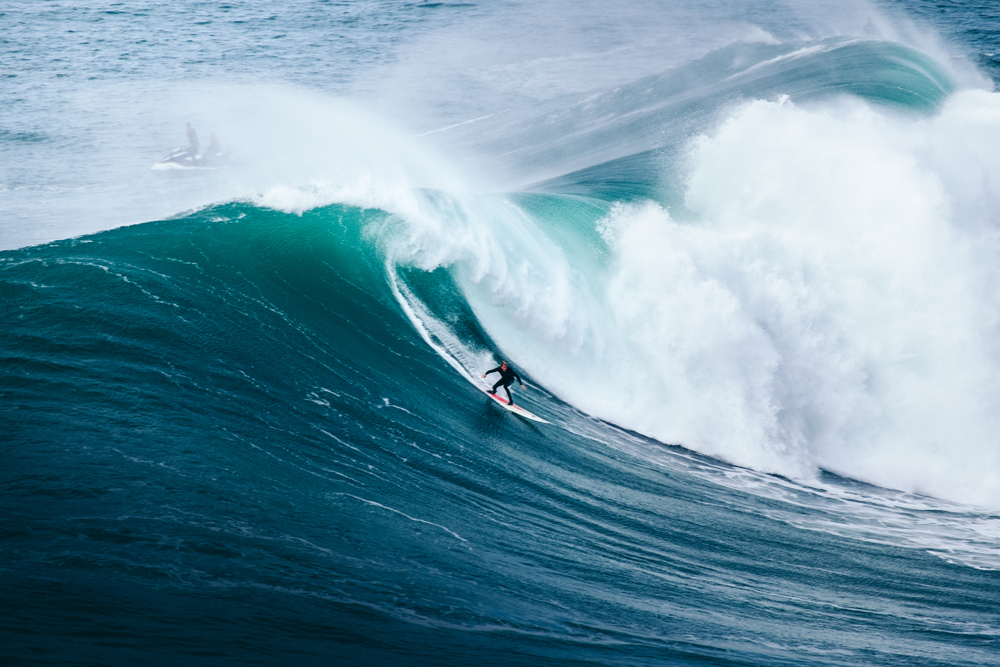
Let’s face it—figuring out where to catch your first wave in Portugal can be seriously overwhelming. With so many beaches, it feels almost impossible to know which ones are actually beginner-friendly, and nobody wants to show up at a spot where seasoned pros are carving up huge swells while you’re still learning how to stand up. There’s a real fear of booking the wrong place, getting caught in the wrong kind of waves, or finding yourself lost in a sea of crowds—and it’s easy to worry you’ll miss out on that unforgettable, first-time surf experience. The good news is, a little know-how goes a long way. If you want to skip the stress, get to the fun part fast, and feel confident about choosing a safe and welcoming beach, you’re in the right place. Let’s cut through the confusion and zero in on exactly what makes Portugal so perfect for learning to surf from day one.
Why Learning to Surf in Portugal Can Feel Overwhelming
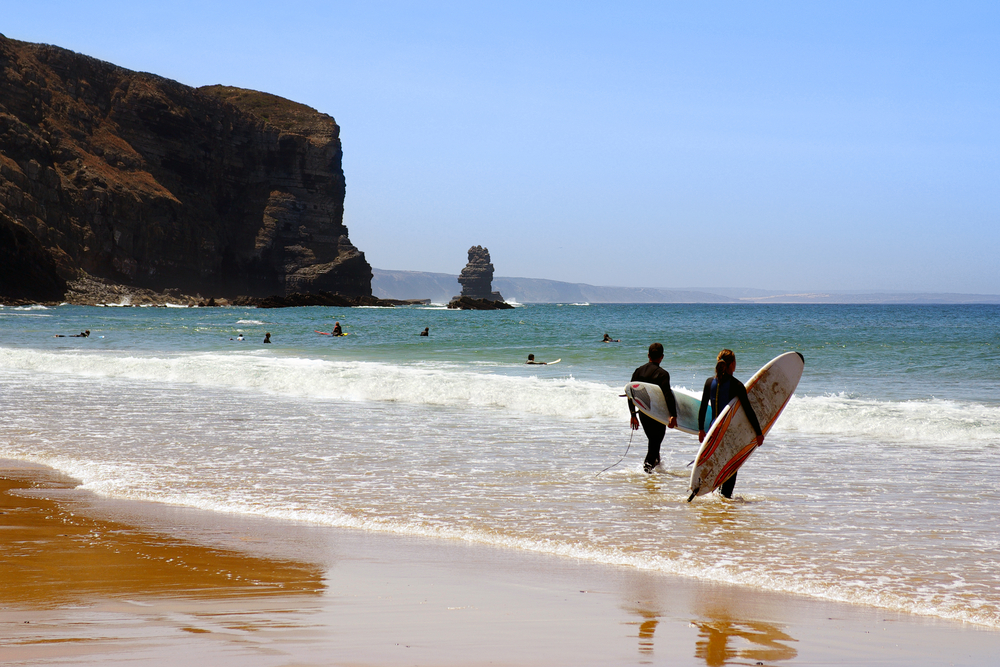
Here’s what no one tells you: Portugal is packed with surf spots. Seriously—there are hundreds of beaches! But landing on the perfect place for absolute beginners? That’s another story. Some beaches have world-class, thundering waves (read: terrifying for newbies). Others are swarmed with crowds, which can make your first session feel more like a bumper car ride than a chill learning experience.
And if you’re planning from afar, it’s normal to feel a bit lost. How do you make sure the waves are gentle (not monstrous)? Can you find a good instructor? What about safety—are there places to grab a lesson, or is it all up to you and YouTube?
How This Guide Can Help
I’m here to make everything simple. Over the years, I’ve checked out Portugal’s surf beaches up and down the coast, chatted with locals, and researched every nook and cranny. I’ll break down the easiest, safest spots for learning. I’ll tip you off to surf schools that really care about beginners—not just making a quick buck. Plus, I’ll share some local secrets that help cut through the stress so you can focus on having fun in the water.
Questions I’ll Answer
By the end of this, you’ll know:
- Where you’ll find the best surf spot for learners in Portugal (and why these places really work for newbies)
- When to plan your trip for the safest, most relaxing wave conditions (fun fact: summer isn’t always the most crowded!)
- How to find surf schools—and whether you need one at all
- If you can start somewhere legendary—like Nazaré (famous for the giant waves!)—without risking your life
Thinking it still sounds tricky? Don’t worry. You don’t need to guess or wing it—there are real answers, and I’ll show you exactly where to start. Ready to find out if Portugal is really as perfect for beginners as you’ve heard? Let’s check it out in the next section—where I’ll share what actually makes Portugal a dream surf destination for first-timers.
Is Portugal Really Good for Learning to Surf?
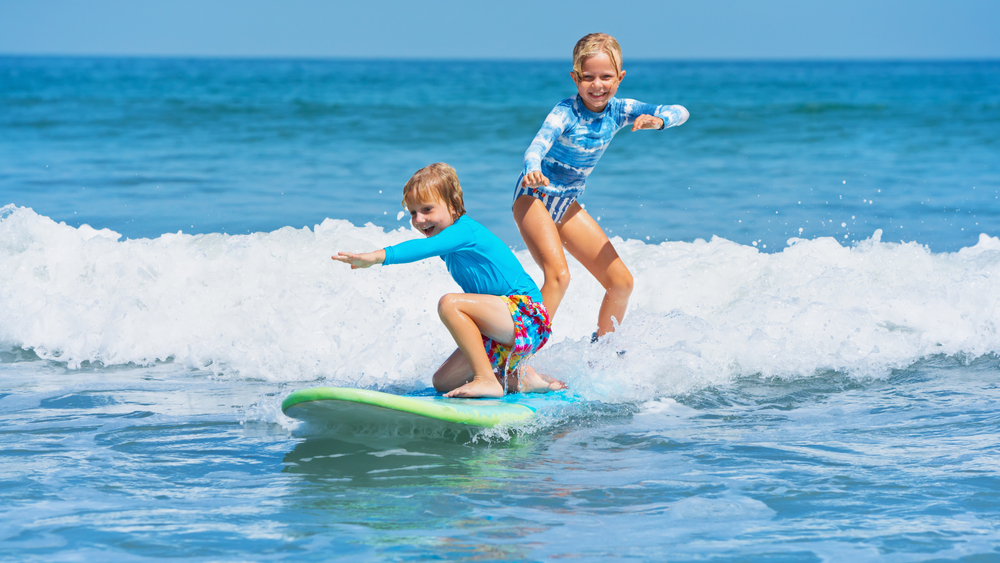
Portugal’s Friendly Waves and Surf Culture
If you’re dreaming about catching your first wave in a place that’s both gorgeous and genuinely welcoming, you’ll love Portugal. Picture this: more than 800 kilometers of wild Atlantic coastline, sprinkled with everything from lively city beaches to quiet, untouched stretches of sand. Portugal isn’t all towering Nazaré monsters—so don’t believe the hype that it’s just for daredevils. In fact, this place is tailor-made for beginners who want mellow, playful waves in beautiful settings.
What makes it extra special? The surf community here. Portuguese surfers are some of the friendliest folks you’ll meet. Whether you stumble into a beach café in Ericeira or join a beginner session at Costa da Caparica, almost everyone is happy to share tips and cheer you on. I’ve seen people exchange boards and stories between sets, and you’ll often hear the phrase, “Aqui, todos aprendem juntos”—“Here, we all learn together.” That vibe goes a long way when you’re wobbling to your feet for the very first time.
Variety Means There’s a Beach for Everyone
The real superpower Portugal has for newbies is this: variety. You’ll find everything from wind-sheltered coves with gentle rolling waves, to massive sandy bays with space for everyone. If you’re nervous about crowds or big wipeouts, spots like Figueira da Foz or Amado Beach give you tons of room to learn without feeling watched. (Fun fact: According to a study by the University of Lisbon, about 70% of surf learners in Portugal choose these wider, safer beaches for their first go.)
- Sheltered coves (like São Julião) – These are perfect for those early sessions when you just want a gentle push.
- Iconic sandy beaches (like Praia da Rocha and Costa da Caparica) – Here, the sand cushions your falls, and the waves come in long, soft sets.
- Quiet town beaches with local instructors who know which spots are least intimidating for absolute beginners.
If you’re the kind of person who needs space to mess up (and laugh it off), that’s easy to find. If you want to blend in with other learners and surf right near a café for a warming pastel de nata after your lesson, just wander the coast—the right spot is waiting.
“Waves are not measured in feet and inches, they are measured in increments of fear.” – Buzzy Trent, surf pioneer. But in Portugal, those scary increments shrink, thanks to gentle beaches and friendly surfers.
It all sounds perfect, right? But maybe you’re wondering—what about the best time of year to go? Or which months have those sweet, beginner-friendly waves everyone raves about? Stick around, because that answer can make or break your first surf trip—and I’ll break it down in the next section.
Timing Your First Portuguese Surf Trip
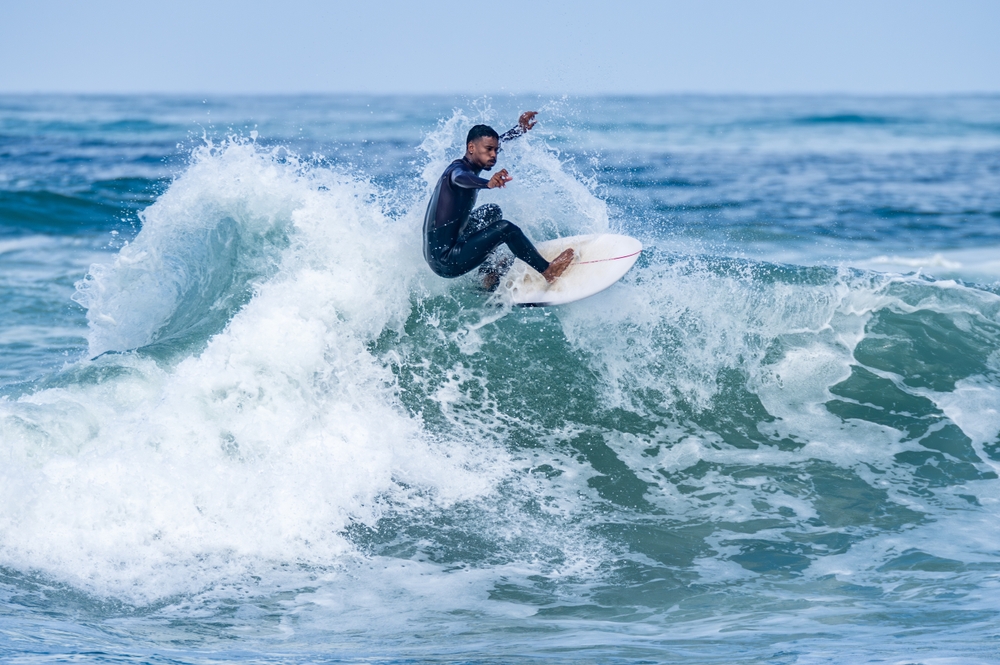
Trying to figure out the best time to learn to surf in Portugal? Trust me, the weather and wave conditions matter just as much as picking the right beach. Get this part right, and your first surf session will be way more fun—and way less intimidating.
Surf Seasons: What to Expect Month by Month
Portugal’s coast offers year-round surf, but not all seasons are created equal for newbies. If you really want to beat the learning curve (and not feel like you’re fighting against the ocean every time you stand up), here’s what you need to know:
- May to October: This is the golden window for beginners. Waves stay smaller, water and air temperatures are comfortable, and sunshine is almost a given. Even studies from surf schools consistently rate this period as “beginner-friendly,” especially June and September when waves tend to be the most mellow. I vividly remember my first lesson at Praia da Rocha in early June—perfect waist-high waves and not a nerve in sight.
- Winter (November to March): Waves get much bigger, crowds thin out, but it’s really only a good idea if you’re already confident or dreaming of a cold-water adrenaline rush. Seriously, leave the winter barrels for the pros and local legends.
- Shoulder Months (April & late October): Conditions can be a wild card. Some days are gentle, others are more challenging. Great if you want to squeeze in a trip on the edges of high season, but keep an eye on the surf reports—apps like Magicseaweed or Windguru are lifesavers here.
“The right wave at the right time makes all the difference between giving up and falling in love with surfing.”
And it’s true. If you time it well, your first trip won’t just be about struggling with the board—it’ll be about catching your first real rides (and the happiest wipeouts you’ll ever experience).
Avoiding the Crowds
Showing up on a sunny August afternoon at a famous beach can feel overwhelming—kind of like trying to learn to ride a bike on a busy highway. Here’s how to keep things chill:
- Skip the major holidays and weekends if you can. Midweek days, especially in early June or late September, deliver quiet lineups and plenty of space for your first attempts.
- Surf early or late. Dawn patrol isn’t just for hardcore surfers. Early mornings or even late afternoons offer less crowded beaches and friendlier waves—plus, sunrise and sunset surf lessons are pure magic.
- Seek out less obvious beaches. Spots just outside the main tourist hubs (think Sesimbra instead of Carcavelos, or Monte Clerigo instead of Amado) can be goldmines for peaceful, beginner-friendly waves.
Remember, the right timing isn’t just about the season—it’s about finding the perfect moment where the ocean feels welcoming, not wild.
You might now be wondering: what actually makes a beach truly safe and beginner-friendly? Is it all about wave size, or is there more behind those surf-school recommendations? Stick around, because next I’ll break down exactly how to spot a beach that helps new surfers thrive…
What Makes a Beach Beginner-Friendly?
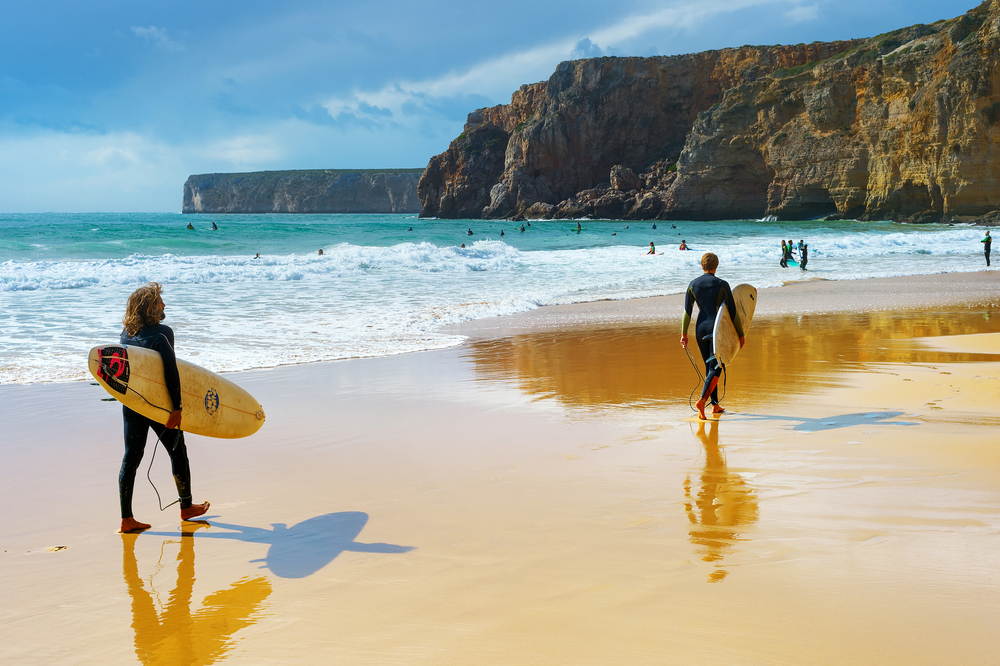
Ever felt that surge of excitement (and let’s be honest, total nerves) when you first set eyes on a surf break? Not all beaches are created equal when you’re learning—the best ones feel like a warm hug, not an intimidating challenge. I’ve chased waves all over Portugal, and I can promise it’s not just luck that some beaches make you feel like a surf hero from day one. It’s all about picking places ready for your first ride.
Wave Type and Water Conditions
If there’s one thing to remember, it’s this: the right wave is your best friend. Forget the monster walls you see in pro competitions, look for beach breaks with gentle, rolling waves. Soft, sandy bottoms—like those at Amado Beach or Costa da Caparica—are forgiving on your first wipeouts (and trust me, those happen a lot and they’re half the fun!). Avoiding rocky reefs or strong rips makes a day in the water actually enjoyable, not stressful. In fact, the International Surfing Association points out that learning on slow, consistent beach breaks leads to faster progress—and safer, happier surf sessions.
“The best surfer out there is the one having the most fun.” – Phil Edwards
Surf Schools and Rentals Matter
Even if you want to blaze your own trail, there’s real magic in having passionate local instructors cheering you on. At beginner-friendly beaches, you’ll bump into schools that know exactly how to help new surfers stand up on their first day. Experienced coaches, foam boards, and gear that actually fits you make all the difference. I always love seeing students at Praia da Rocha wobbling up, grinning ear to ear—proof that the right lesson can turn those “what-am-I-doing” moments into pure happiness.
- Certified schools keep you safer (look for “ISA” or Portuguese Surf Federation approvals)
- Friendly instructors build your confidence wave by wave
- Most spots have rental shops steps from the sand
Local Vibes & Facilities
Let’s be honest: learning to surf is as much about soaking up the chill, sun-drenched atmosphere as it is about technique. The best beginner beaches aren’t just about what’s in the water—they’ve got that unmistakable community energy. Think affordable beachfront cafés for your post-surf espresso, clean showers to rinse off, and a patient, positive crowd that gets you’re learning (nobody rolling their eyes when you flail around). You’ll find this vibe at places like Arrifana and Figueira da Foz, where the stoke is contagious and everyone’s rooting for you.
Can you imagine yourself paddling out, surrounded by friendly faces, gentle waves, and the smell of fresh Portuguese coffee drifting from the beach bar? Sounds like magic, right?
But how do you actually pick the right beach for your first surf—where the sand, waves, and people all work together to set you up for success? That’s where my next picks come in. Ready to see which five beginner surf spots in Portugal always get it right? Trust me, you’ll want to keep reading…
Top 5 Beginner Surf Spots in Portugal
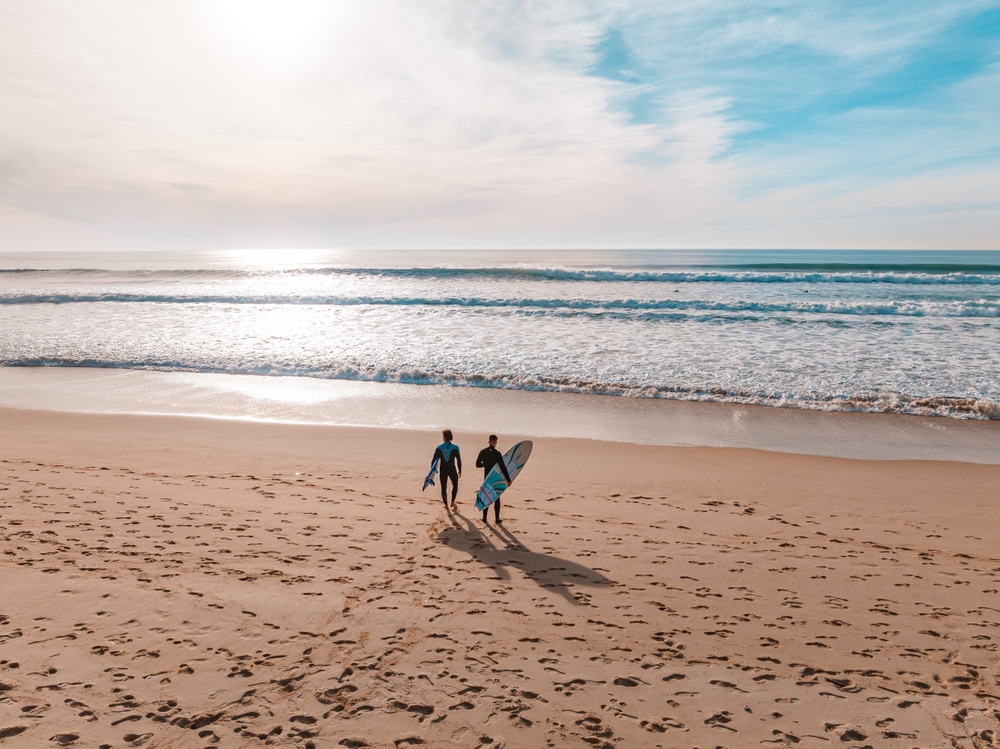
Learning to surf is a wild mix of nerves and excitement. Picking the right beach makes a world of difference—and trust me, it’s not just about the waves. I’ve paddled out at spots up and down the coast, and these are the places where beginners truly find their groove (and get some solid ride time!).
Praia da Rocha—The Algarve’s Reliable Beach
There’s a reason so many rookie surfers end up loving Praia da Rocha. The waves roll in smooth and steady, there’s loads of space to spread out, and “intimidating” simply isn’t in the local vocabulary.
- Easy, long rides—perfect for learning the basics
- Almost a dozen surf schools to choose from
- Soft, sandy bottom—no sharp rocks to worry about
- Tip: Even if you wipe out, the vibe is pure encouragement. Locals are used to beginners and love seeing new faces try surfing.
“It’s not about being the best. It’s about having fun and feeling the wave for the first time.”
This mindset sums up the Praia da Rocha magic.
Costa da Caparica—Close to Lisbon
Want to fit a surf session between exploring Lisbon? Costa da Caparica is the city beach that somehow keeps its relaxed energy, even at peak season. The surf scene is friendly, and there’s almost always a spot for your board.
- Mild, forgiving waves with plenty of whitewater for practicing
- Hip beach bars and cafés—post-surf snacks sorted
- Quick and cheap to get to from the center of Lisbon (less than 30 minutes!)
Most surf schools offer lessons with all gear included. If you like a lively beach day (think people-watching and sunset music), add this to your must-surf list.
Figueira da Foz—Wide Beaches, Less Pressure
Not a fan of crowded lineups? Figueira da Foz is your safe haven. This beach is huge—so there’s always a quiet patch to practice without someone splashing nearby. The local surf schools really take care of beginners, making sure you get personalized coaching.
- Long, open beaches mean room to relax and learn at your own speed
- Softer, rolling waves for forgiving wipeouts (and lots of laughs)
- Budget-friendly lessons and board rentals
- Plenty of surf camps if you want to meet others and turn your trip into a social adventure
A study by Portuguese coastal researchers even singled out the Figueira beaches for their gentle beginner breaks—so it’s not just local hype!
Arrifana Beach—Laid-Back Vibe in a Stunning Setting
Imagine turquoise water backed by towering cliffs and a beach that feels like a secret. Arrifana is just that—beautiful, calm, and a bit tucked away, with smaller summer swells that help you learn safely.
- Tons of surf camps and English-speaking instructors
- Chill, supportive crowd—everyone is rooting for you
- Try grilled fish or a cold drink after your session at beachside cafes
This is where you go if you want to escape, slow down, and remember why you came to Portugal in the first place.
Amado Beach—A Favorite for Surf Schools
Every surf school on the Algarve seems to have Amado in their top three—there’s a reason. This wide stretch of sand is famous for waves that feel tailor-made for newbies. No wonder it’s always buzzing with first-timers!
- Beginners everywhere: If you ever feel awkward, just look around—everyone is learning!
- Plenty of patient coaches who speak English (and several other languages)
- Showers, rentals, and places for a quick bite—super convenient
It’s impossible to leave Amado without feeling more confident. People you meet here often become your new surf buddies for life.
Bonus: Praia da Nazaré – Yes, Beginners Can Surf Here
Nazaré’s reputation is all about monster waves and big wave pros, but here’s the secret: there are beginner-friendly sections, too. Near the south end of the beach and at Praia do Norte (in summer), you’ll find mellow conditions, especially with the right forecast and a skilled coach guiding you.
- Several surf schools specialize in newbie lessons—yes, even in Nazaré!
- You’ll get to say you started your surf journey somewhere legendary
Just remember—if you want to tackle your first “Nazaré wave,” do it with a pro by your side. There’s nothing more inspiring than learning where history’s been made.
Craving that first lesson already? The real magic happens when you find the right teacher—so next up: how do you pick the perfect surf school for your Portugal adventure? (And, do you need to book ahead, or can you just show up with your flip-flops and a smile?) Let’s break it down so your first wave is worry-free.
How to Pick the Right Surf School
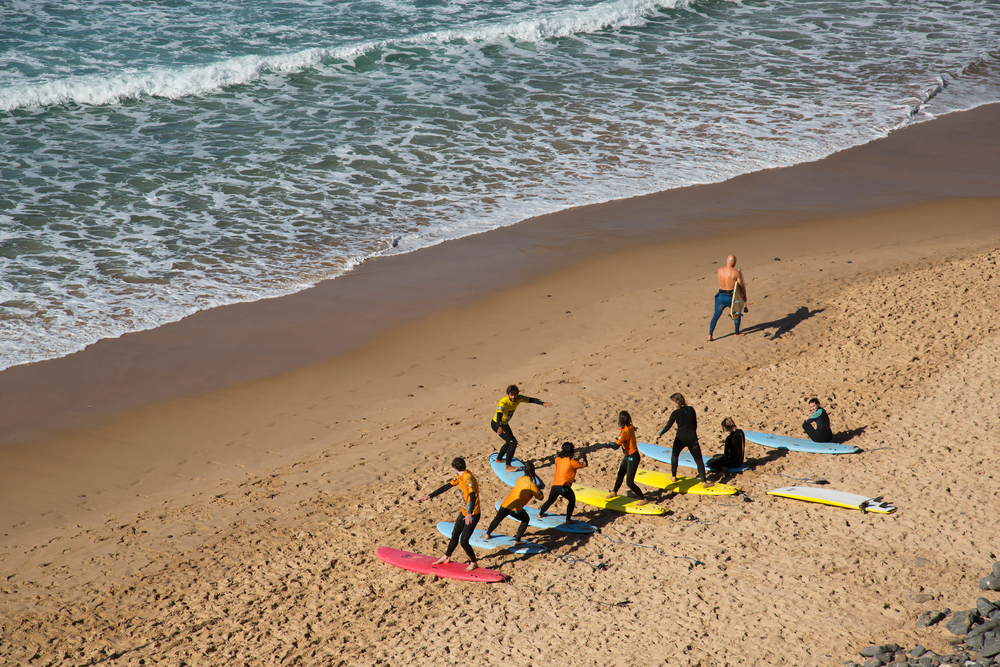
Imagine standing on the sand, board under your arm, grinning from ear to ear after catching your very first wave. That confidence boost? Nine times out of ten, it starts with a quality surf lesson. Picking the right surf school isn’t about signing up for the first place you see—in Portugal, there are loads of choices, and choosing the right one can completely change your first surfing adventure.
What Makes a Good Surf Lesson
A surf school’s vibe is as important as the waves you’ll try to ride. Want to know if you’ve found a great one? Start with these signs:
- Certified Instructors: Look for surf schools with certified coaches (like ISA or local Portuguese federations). This is essential—not just for safety, but to guarantee your instructor knows how to teach, not just surf.
- Small Group Sizes: Ever heard the quote, “The best teachers teach from the heart, not from the book”? With a small class, your instructor can actually notice what you’re doing right (and wrong), and give that game-changing feedback, not just generic tips to a crowd.
- Personalized Gear: Good schools won’t throw just any board at you—you’ll get one sized for your ability, shape, and even your height. Same goes for wetsuits: being comfortable makes it way easier to focus on fun.
- Safety & Fun Go Together: A truly beginner-friendly school keeps the vibe encouraging, keeps an eye on everyone, and respects sea conditions every single lesson.
I’ve seen first-timers go from nervous to absolutely hooked—all thanks to a friendly lesson at places like Surf Castle in Peniche or Amado Surf Camp. These are the kinds of schools where smiles are as common as surfboards, and nobody gets left out.
Should You Book in Advance?
Portugal’s coastline is famous, and during the best months (think late spring through early autumn), surf schools fill up fast. Here’s the thing—
- If you have your heart set on a specific school or instructor, book as soon as your dates are set! This is especially true in places like the Algarve or Caparica, where classes can fill up weeks in advance.
- If you’re flexible, sometimes you can walk up and find a spot, especially outside peak holiday weeks or in quieter towns—just don’t expect it to always work out. Walking up last minute might work in sleepy Figueira da Foz, but it’s riskier in buzzy Lagos or Ericeira.
- Online Reviews Matter: Check recent student reviews for honesty about how group sizes, safety, and friendliness really stack up. People are always quick to call out bad experiences—or rave about a stellar one.
I always say, investing in the right lesson is worth double the money you spend. According to an international surf tourism study, surfers who took professional beginner lessons reported feeling 40% more confident in the water and were twice as likely to surf again the next season. Your first wave can be thrilling—or kind of scary! A great lesson makes all the difference.
Ready to pack for your first ever surf trip? Next up, I’ll share exactly what to bring (and what you can leave at home), so you walk onto that beach looking—and feeling—like you know what you’re doing. Curious about the must-have gear? Let’s check your surf trip packing list next.
Packing for Your Portuguese Surf Trip
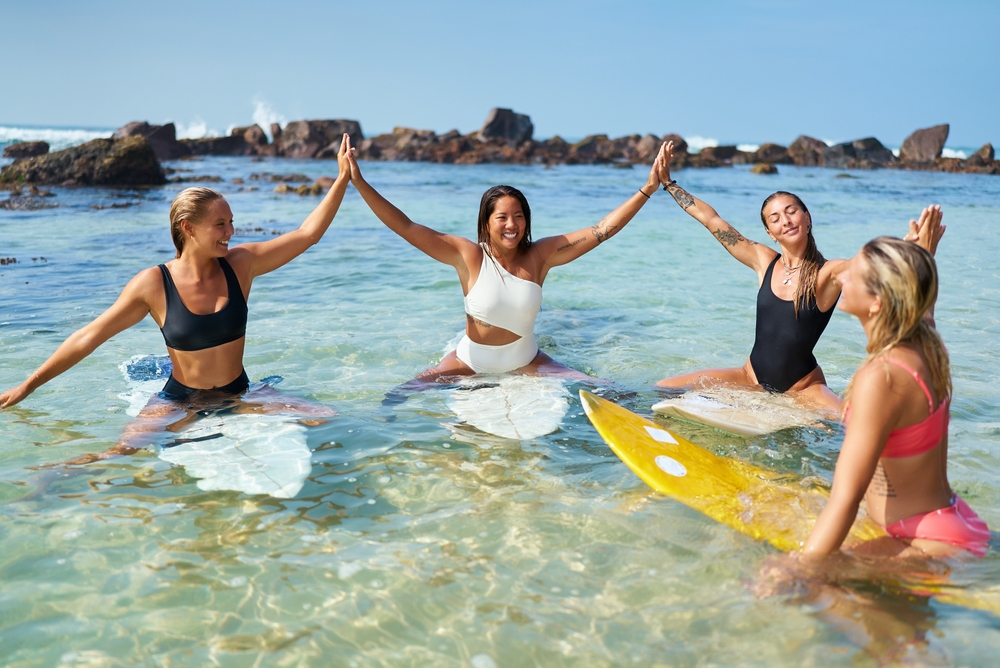
I’ll be honest: you really don’t need a trunk full of gear to have a blast learning to surf in Portugal. Still, a little smart packing makes your first sessions a whole lot more fun—and yes, a lot less chilly! As someone once told me at my first lesson in Ericeira,
“The best surfer out there is the one having the most fun.”
That can be you, if you show up with just the right stuff. Here’s what makes the cut.
Essential Gear (and What You Can Easily Rent)
Most beginner hot spots, like Praia da Rocha and Costa da Caparica, are packed with surf schools that have everything you need—no need to lug a board through the airport, unless you really want your own.
- Surfboard: Foam boards (aka “soft-tops”) are the friendliest for learning. Every surf school in Portugal has them. Unless you plan on surfing daily for weeks, renting is way easier. Bonus: they usually come with a leash and wax included.
- Wetsuit: Even in July, the Atlantic can surprise you. Most schools include high-quality wetsuit rental in the lesson price. If you tend to feel chilly, mention it—most places stock extra thick suits (4/3mm) from top brands like Rip Curl and O’Neill.
- Sunscreen: Portuguese sun + sea = sneaky sunburn. I always pack a reef-safe, water-resistant sunscreen (at least SPF 30). It stays put between sets and is better for the ocean.
A quick note: A study by the European Environmental Agency shows that up to 25% of coral reefs could be affected by regular sunscreen, so going “reef-safe” isn’t just hype—it’s helping those beautiful waters you’re surfing in.
Other Things You’ll Want for the Beach
There’s nothing worse than being halfway through your afternoon lesson and realizing you’re missing that one thing that could totally save the day. Here are a few must-haves I always recommend:
- Beach towel: Large, lightweight, and quick-dry (Turkish towels are perfect and fold up tiny in your bag).
- Water bottle: Reusable, always. You’ll be thirsty by the end of your session. Many surf spots in Portugal now have refill stations along the promenade.
- Snacks: Energy bars, fruit, or a pastel de nata (local pastry)—trust me, post-surf hunger is real.
- Sunhat & sunglasses: For the moments you’re soaking up the vibes, not just the waves.
- Flip-flops: No one wants to wrestle sandy, soaked shoes.
- Rash guard: Not essential, but if you have sensitive skin or want extra sun protection, bring one along. Many schools have them, too.
A tip I learned after several soggy sessions: throw a trash bag or a roomy dry bag in your backpack for sandy wetsuits or wet towels. Your future self (and your rental car) will thank you.
Getting ready to paddle out feels way less stressful when you pack smart. But what if you want some extra travel hacks or aren’t sure where to look for more advice? Curious what I always check before hopping on a surf trip? Stick around—up next, I’ll share my favorite resources that make planning your first surf adventure ridiculously easy.
Extra Resources to Make Your Trip Easier
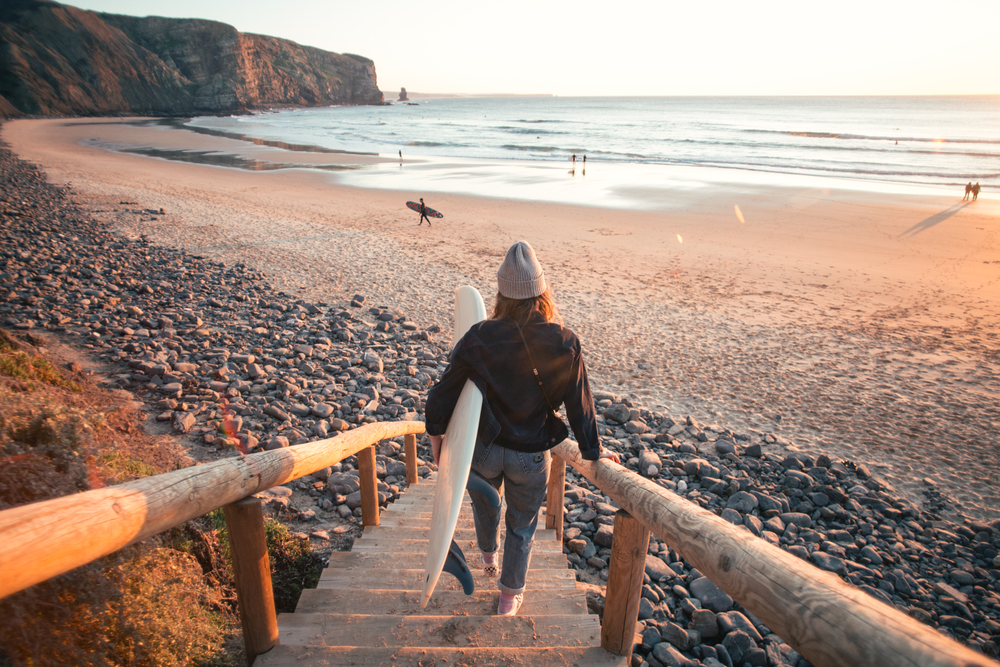
Where to Dig Deeper
Alright, I know picking the right surf spot is only one piece of the puzzle. If you’re like most beginners, you probably want a bit more in-depth info before you book that flight or board lesson. Totally makes sense! While I’ve shared the essentials here, I want to give you a couple of extra resources that are packed with practical tips and up-to-date recommendations—stuff even locals check out!
- Surf Escape’s Beginner TipsThinking about how to paddle out for the first time—or what NOT to do on your first day in the surf? This guide spills the beans on what to expect as a beginner in Portugal, from ideal gear to the realities of learning at different beaches. It even busts some common myths about surfing here.
- Siesta Campers’ Top BeachesCurious about the best beginner beaches beyond the usual hotspots? Here’s where you’ll get a local-style, no-nonsense breakdown of more surf spots, what makes them stand out, and honest reviews from travelers who’ve actually paddled out. Super useful if you want to mix surfing with a bit of Portuguese road trip magic.
I’m all about plugging you into resources that make your experience smoother, safer, and way more fun. These guides are especially handy for planning your trip—the sort of advice you usually only get if you hang out in a surf camp for a week (but, hey, reading a guide is way cheaper and quicker).
Quick tip: A 2023 beginner survey by Surf Escape found that 78% of new surfers in Portugal felt more confident after brushing up with well-curated local guides. So don’t be shy about reading around—confidence is everything on your first trip!
Still need help choosing between two beaches, or wondering if you really need those private lessons? Got questions about quirky local customs or how to blend in with the surf crowd? Stick with me—next up, I’ve got some motivation and answers that’ll get you right on track for your big Portuguese surf adventure. Ready for that final push to make your dream session happen?
Your First Portuguese Waves Are Waiting
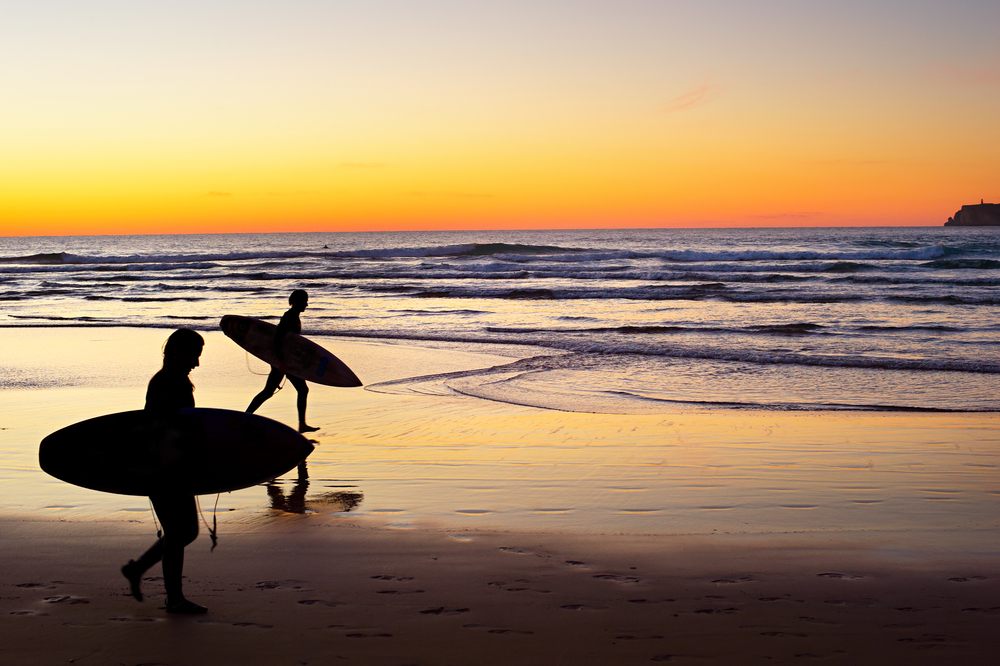
Quick Recap: Why Portugal Is Perfect for Beginners
If you’re picturing yourself popping up on your board for the first time with the sun on your face and the Atlantic rolling in—trust me, you’re already halfway there. Portugal is hands-down one of the easiest, safest places for newbies to feel at home in the surf. You’ve got mellow beach breaks, certified instructors who genuinely love teaching newcomers, and a surf scene where beginners are totally embraced.
From Costa da Caparica’s city buzz to Arrifana’s peaceful cliffs, there’s a stretch of sand here with your name on it. With warm summers, affordable lessons, and a friendly crowd, the hardest part is just choosing which beach to start with.
How to Get Started
This is the fun part—planning your first real session! You don’t need much: book a lesson at a trusted local surf school (almost every spot I’ve described has a choice of great ones), grab a board and a wetsuit (you can rent it all), and pencil a few days on your calendar.
- Book ahead: Especially in summer, popular schools fill up. Check reviews, compare prices, and don’t be afraid to ask for small group lessons for more attention.
- Go with a buddy—or not! Whether you bring a friend or go solo, you’ll soon meet people with the same “I hope I don’t look ridiculous” vibes. Everyone’s in it together.
- Read up: Check those extra resources, get a feel for tides and weather forecasts, and pick a spot that matches your comfort level.
The rest is just—you, the ocean, a little patience, and that first rush when you catch a wave (even if it’s tiny).
Final Thoughts—Catch Your First Wave
“You don’t have to be a pro—or even vaguely coordinated—to stand up on a wave in Portugal. You just have to show up, paddle out, and laugh when you wipe out. The best surfers are the ones having the most fun.”
That’s the thing: learning to surf here isn’t some rare bucket-list dream. Thousands of people, from teens to retirees, jump on a board for the first time every summer up and down Portugal’s coast. According to the Portuguese Surfing Federation, beginner surf lessons have surged in popularity over the last decade, and most students are total first-timers.
So, if you’ve been sitting on the fence, staring at all those perfect beach photos… now’s your moment. Portugal’s famous beginner waves are just waiting for you. Pack your sense of adventure (and maybe a snack or two), book your lesson, and just go for it. The ocean doesn’t care if you’re a little nervous—it just wants you in the water.
Get ready to laugh, splash, tumble, and—in no time—stand up grinning like you’ve just discovered the best secret in Europe. Because, honestly, you have.